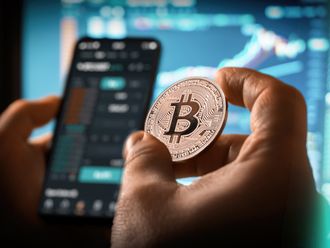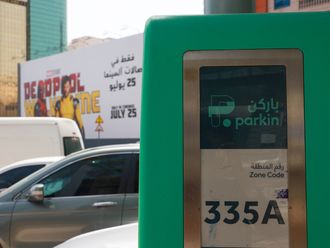An optimist stays up until midnight to see the new year in. A pessimist stays up to make sure the old year leaves.' — Bill Vaughn, American author.
Here is a multiple choice questionnaire on how the Islamic finance industry performed in the past year and what may lie ahead for it in the coming months.
1. Has Islamic finance succeeded in meeting its objectives of financial inclusion, deriving profits from doing good and distributing wealth and eradicating poverty, since its birth 40 years ago?
a. No. Today Islamic fin-ance is about providing banking services to those who can afford them. Very little attention is paid to the needs of the majority of people, who require micro-financing and funding for small and medium enterprises, among others. An Occupy Wall Street- type popular movement is needed to push the industry into prioritising these objectives.
b. Yes, but slowly. The industry has just reached $1 trillion and cannot be expected to meet all its strategic objectives while still at an embryonic stage.
- Columnist Pick: a
2. What are the major risks for the growth and development of Islamic finance?
a. A lack of short-term liquidity and weak risk management procedures
b. Sharia scholars, with their own consulting firms, making rulings that are in their own interests and not in line with the principles of Islamic finance.
c. External shocks, such as sovereign debt crisis, a collapse of the price of oil and the Arab Spring.
d. A lack of international standardisation in the qualifications of Islamic finance experts and the regulations for the industry.
- Columnist Pick: a
3. Islamic finance has encountered much "resistance or hostility" in many countries. Why?
a. The anti-Sharia movement in the West (and the media that cooperates with them) views Islamic finance as a fifth column that will undermine democratic principles and finance terrorism.
b. Purists in Islamic fin-ance, who believe innovation is selling out, but will not provide alternatives suggestions about how to succeed in the modern economy.
c. Many Muslim countries see Islamic finance as seen catering to "extremists".
d. All of the above
- Columnist Pick: d
4. What has been the most under-utilised concept in Islamic finance that can economically and financially benefit countries?
a. Qard-ul-Hasan (benevolent loan)
b. Zakat (almsgiving)
c. Waqf (endowment)
d. Islamic venture capital, micro-finance and SME financing
e. All of above
- Columnist Pick: e
5. Has the Islamic finance industry shown how it is different from conventional financial institutions?
a. No. Innovation and authenticity are lacking in the industry and its offerings are seen as conventional products in an Islamic wrapping.
b. Yes. But, the industry has taken a ‘go-slow' approach and has not marketed its successes.
c. More time is needed to provide a meaningful answer.
- Columnist Pick: c
6. The $640 billion halal (food) industry has greater reach and depth globally than Islamic Finance. Why?
a. "Food" is demand based as Muslims need to eat, but Islamic finance services are optional as not all Muslims need a bank account.
b. Halal is easier to explain and understand than the opaqueness associated with Islamic finance
c. Halal does not evoke a "negative" connotation, as "Sharia" finance does in the West and selected Muslim countries, like Turkey.
d. All of the above
- Columnist Pick: d
7. In which country will Islamic finance have the largest impact?
a. Nigeria, as the largest populated country in Africa.
b. India, which has the second or third largest Muslim population.
c. Indonesia, the largest populated Muslim country.
d. The US, if the world's economic and military super-power is able to address the fear mongering about Islamic finance
e. Russia, which is surrounded by Muslim countries and wants to build bridges to the wealthier Islamic world.
f. China, which has a restive Muslim population of 40 million and wants to increase trade and investment with wealthier Islamic countries.
- Columnist Pick: b and d
8. What country will lead the growth and expansion of Islamic finance in the next decade?
a. Malaysia, as it has the infrastructure needed to increase the scale of Islamic finance operations.
b. Saudi Arabia, which has the oil resources to back its infrastructure development projects with Islamic finance.
c. Egypt, as the post-Mubarak era will be about financial inclusion of the un-bankable and the under-banked, especially if the Muslim Brotherhood takes a more "middle of road" approach to politics.
d. France, as United Kingdom has lost the political will to make London a global Islamic finance hub.
e. The UAE, which has been a proponent of Islamic finance since the 1970s.
- Columnist Pick: a and c
9. A western company that has recently "stood out" in regard to their conduct towards Muslims and Islamic finance?
a. Lowe's, a home retailer, that pulled an advertisement from a reality show in the US, All-American Muslim, because of pressure from a group, the Florida Family Association.
b. Goldman Sach's $2 billion Sukuk because of its structure, use of proceeds and trading value.
c. BASF, a chemical company, which is in the Dow Jones Islamic Market Index (DJIM). A company official stated: "The DJIM listing is a welcome recognition of not just the strength of our brand in the region and the interest of Sharia-compliant investors, but of our philosophy to abide by the highest ethical standards in all our dealings, and respect the cultural mores of our customers in every geography that we enter."
- Columnist Pick: c
10. Highlights for Islamic finance in 2012, include:
a. Thomson Reuter's launch of the Islamic Interbank Benchmark (IIBR).
(Full disclosure, the writer works for Thomson Reuters.)
b. Kazanah's Dim-Sum Sukuk (an offshore, three year, 500 million yuan sukuk)
c. Kuveyt Turk's five year $350 million asset backed sukuk
d. IdealRatings launch of the world's first halal food equity index (SAMI).
- Columnist Pick: None — the columnist has a conflict of interest.
The writer is Global Head, Islamic Finance and OIC Countries, Thomson Reuters. Opinion expressed here is the writer's own and does not reflect that of his own organisation or that of Gulf News.












